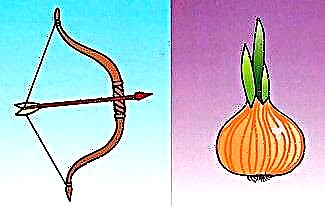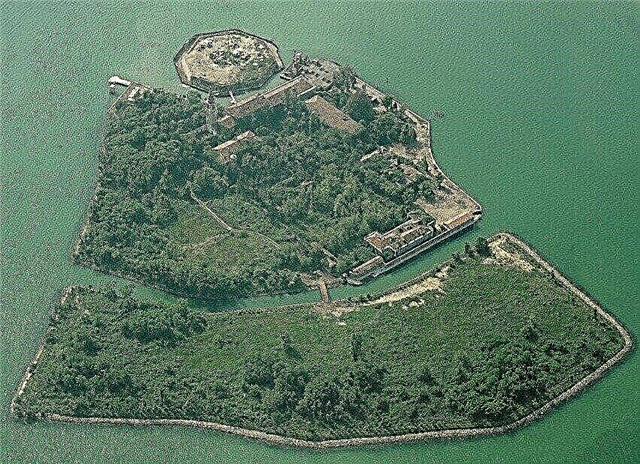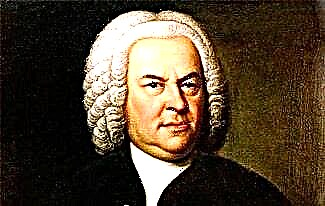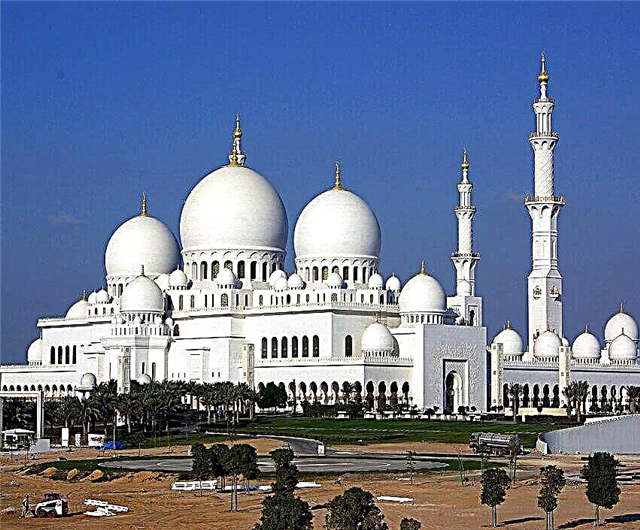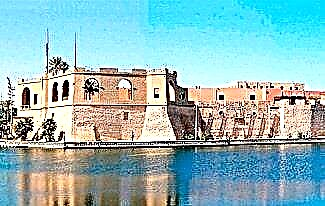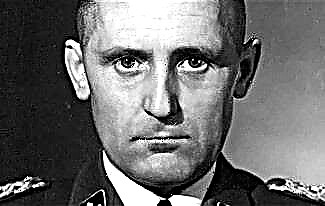Michel de Montaigne (1533-1592) - French writer and philosopher of the Renaissance, author of the book "Experiments". The founder of the essay genre.
There are many interesting facts in the biography of Montaigne, which we will tell about in this article.
So, before you is a short biography of Michel de Montaigne.

Biography of Montaigne
Michel de Montaigne was born on February 28, 1533 in the French commune of Saint-Michel de Montaigne. He grew up in the family of Bordeaux Mayor Pierre Eckem and Antoinette de Lopez, who came from a wealthy Jewish family.
Childhood and youth
The father of the philosopher was seriously involved in raising his son, which was based on the liberal-humanistic system developed by Montaigne the elder himself.
Michel also had a mentor who had absolutely no command of French. As a result, the teacher communicated with the boy only in Latin, thanks to which the child was able to learn this language. Through the efforts of his father and mentor, Montaigne received an excellent education at home as a child.
Michel soon entered college with a law degree. Then he became a student at the University of Toulouse, where he studied law and philosophy. After graduating from high school, he became seriously interested in politics, as a result of which he wanted to associate with it all his life.
Later, Montaigne was entrusted with the post of adviser to parliament. As a courtier of Charles 11, he participated in the siege of Rouen and was even awarded the Order of St. Michael.
Books and philosophy
In many areas Michel de Montaigne strove to be loyal to different groups and opinions. For example, he took a neutral position in relation to the Catholic Church and the Huguenots, between whom there were religious wars.
The philosopher was highly respected by many public and political figures. He corresponded with famous writers and thinkers, discussing various serious topics.

Montaigne was a wise and erudite man, which allowed him to take up writing. In 1570 he began work on his famous work Experiments. It is worth noting that the official title of this book is "Essays", which literally translates as "attempts" or "experiments."
An interesting fact is that Michel was the first to introduce the word "essay", as a result of which other writers began to use it.
Ten years later, the first part of "Experiments" was published, which gained immense popularity among the educated intelligentsia. Soon Montaigne went on a journey, visiting many European countries.
After some time, the thinker learned that he had been elected mayor of Bordeaux in absentia, which did not make him happy at all. Arriving in France, he realized to his surprise that he could not resign from this position. Even King Henry III assured him of this.
At the height of the civil war, Michel de Montaigne did his best to reconcile the Huguenots and Catholics. His work was favorably received by both sides, which is why both sides tried to interpret it in their favor.
At that time, Montaigne's biographies published new works, and also made some amendments to the previous ones. As a result, "Experiments" began to be a collection of discussions on various topics. The third edition of the book consisted of travel notes during the author's travels in Italy.
To publish it, the writer was forced to go to Paris, where he was imprisoned in the famous Bastille. Michel was suspected of collaborating with the Huguenots, which could cost him his life. The queen, Catherine de 'Medici, interceded for the man, after which he ended up in parliament and in the circle of those close to Henry of Navarre.

The contribution to science that Montaigne made with his work is difficult to overestimate. This was the first example of a psychological study that did not correspond to the traditional literary canons of that era. Experience from the personal biography of the thinker was intertwined with experiences and views on human nature.
The philosophical concept of Michel de Montaigne can be characterized as skepticism of a special kind, which is adjacent to sincere faith. He called selfishness the main reason for human actions. At the same time, the author treated egoism quite normally and even called it necessary for gaining happiness.
After all, if a person begins to take the problems of others as close to his heart as his own, then he will not be happy. Montaigne spoke negatively about pride, believing that the individual is not able to know the absolute truth.
The philosopher considered the pursuit of happiness to be the main goal in people's lives. In addition, he called for justice - each person should be given what he deserves. He also paid great attention to pedagogy.
According to Montaigne, in children, first of all, it is necessary to cultivate a personality, that is, to develop their mental abilities and human qualities, and not to make them only doctors, lawyers or clergymen. At the same time, educators must help the child enjoy life and endure all difficulties.
Personal life
Michel de Montaigne got married at the age of 32. He received a large dowry, as his wife came from a wealthy family. After 3 years, his father died, as a result of which the guy inherited the estate.
This union was successful because love and mutual understanding reigned between the spouses. The couple had many children, but all of them, with the exception of one daughter, died in childhood or adolescence.

In 157, Montaigne sold his judicial position and retired. In the following years of his biography, he began to do what he loved, since he had a steady income.
Michel believed that the relationship between husband and wife should be friendly, even if they stopped loving each other. In turn, spouses need to take care of the health of their children, trying to provide them with everything they need.
Death
Michel de Montaigne died on September 13, 1592 at the age of 59, from a sore throat. On the eve of his death, he asked to perform Mass, during which he died.
Montaigne Photos





